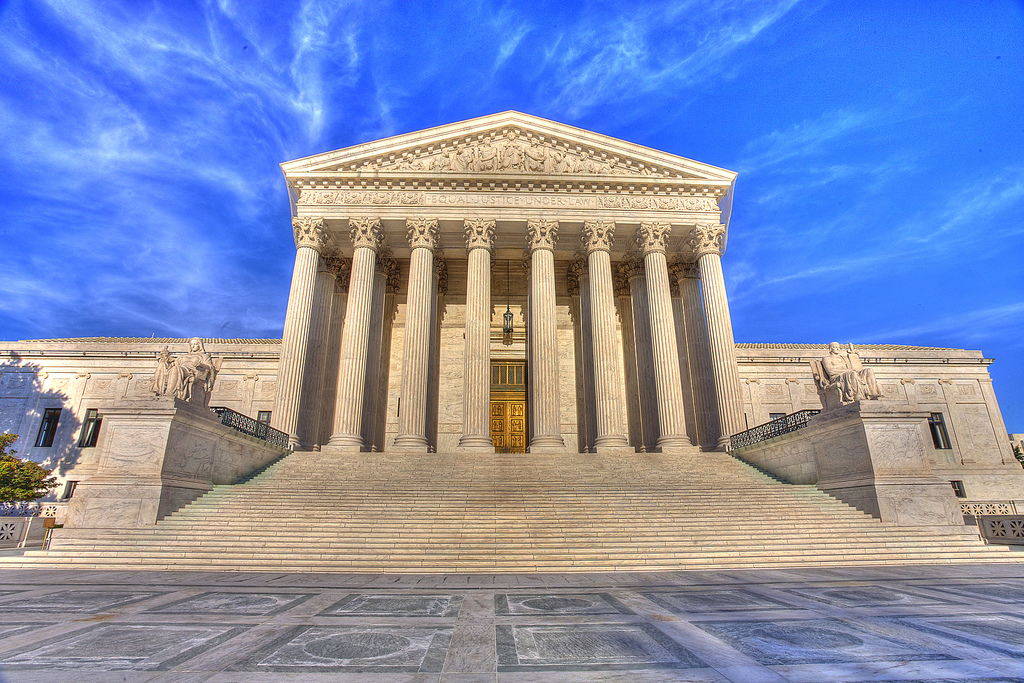The U.S. Supreme Court opened its new term on Monday – often referred to as “First Monday” because by law, the term must begin on the first Monday of October. Although the Court has taken no blockbuster immigration case like 2012’s Arizona v. United States, interpreting state authority to enforce federal immigration laws, the Supreme Court Justices will hear two cases with significant implications for U.S. immigration law.
The first, Mellouli v. Holder, involves whether a noncitizen—even a green card holder—can be mandatorily detained and deported for possessing drug paraphernalia. The defendant, Moones Mellouli is a lawful permanent resident who earned two master’s degrees and worked as an actuary. He was convicted of a Kansas misdemeanor offense, “possession of drug paraphernalia,” a charge that did not make reference to a controlled substance. In fact, his conduct would not constitute a crime under federal law and would not constitute a crime in many states. Nonetheless, ICE arrested Mellouli and sought to deport him for violating a state law “relating to a controlled substance.”
Broadly speaking, Mellouli’s case shows the harshness of DHS’ interpretation of immigration laws, under which minor offenders—even green card holders—are mandatorily detained and deported, without any chance to argue their individual circumstances. Immigrants in recent years have successfully convinced the Supreme Court to rule against DHS regarding their overreaching statutory interpretations of other immigration statutes involving crimes. The University of Minnesota’s Center for New Americans is arguing the case for Mellouli, and 89 law professors submitted an amicus brief supporting his position.
The second case, Kerry v. Din, addresses the doctrine of “consular nonreviewability,” under which U.S. State Department consular officials’ decisions regarding immigration law are shielded from close scrutiny by the courts. In fact, even when immigration officials grant a visa petition, the State Department can still deny the actual visa. In the case before the Court, the government denied a U.S. citizen’s visa petition that she filed on behalf of her husband. The government wants to close the courtroom doors to this U.S. citizen. But, judicial review is crucial to ensure that mistakes are corrected and unlawful government decision making is corrected. Given the stakes involved, some judicial oversight is necessary.
Photo by Envios.
FILED UNDER: Arizona v. United States, Drury University, Immigration Law, Kerry v. Din, Mellouli v. Holder, New Americans, Supreme Court, University of Minnesota, University of Missouri-Columbia


